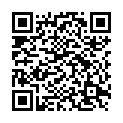|
|
|
| Module code: DFBLG303 |
|
|
2U (2 hours per week) |
|
2 |
| Semester: 3 |
| Mandatory course: yes |
Language of instruction:
English |
Assessment:
Written exam 90 min. (50%) and tests over the course of the semester (50%)
[updated 30.04.2025]
|
DFBBW-344 (P620-0002) Business Administration, Bachelor, ASPO 01.10.2009
, semester 3, mandatory course
DFBBW-344 (P620-0002) Business Administration, Bachelor, ASPO 01.10.2013
, semester 3, mandatory course
DFBTO303 (P620-0515) International Tourism Management, Bachelor, ASPO 01.10.2018
, semester 3, mandatory course
DFITM-305 (P620-0459) International Tourism Management, Bachelor, ASPO 01.10.2020
, semester 3, mandatory course
DFBLG303 (P620-0319) International Logistics Management, Bachelor, ASPO 01.10.2018
, semester 3, mandatory course
DFILM-305 (P620-0406) International Logistics Management, Bachelor, ASPO 01.10.2019
, semester 3, mandatory course
DFILM-305 (P620-0406) International Logistics Management, Bachelor, ASPO 01.10.2022
, semester 3, mandatory course
DFBBW-344 (P620-0002) German-French and International Management, Bachelor, ASPO 01.10.2018
, semester 3, mandatory course
DFIM-304 (P620-0002) German-French and International Management, Bachelor, ASPO 01.10.2019
, semester 3, mandatory course
DFBLG303 (P620-0319) Logistics, Bachelor, ASPO 01.10.2009
, semester 3, mandatory course
DFBLG303 (P620-0319) Logistics, Bachelor, ASPO 01.10.2013
, semester 3, mandatory course
|
30 class hours (= 22.5 clock hours) over a 15-week period.
The total student study time is 60 hours (equivalent to 2 ECTS credits).
There are therefore 37.5 hours available for class preparation and follow-up work and exam preparation.
|
Recommended prerequisites (modules):
None.
|
Recommended as prerequisite for:
DFBLG403 English 4
[updated 01.10.2017]
|
Module coordinator:
Prof. Dr. Thomas Tinnefeld |
Lecturer: Prof. Dr. Thomas Tinnefeld
[updated 01.10.2017]
|
Learning outcomes:
After successfully completing this module, students will: be able to perform at level B1 of the Common European Framework of Reference, largely due to an English learning environment:
- will be able to use basic subject-related knowledge of the foreign language in a communicative manner,
- be able to globally understand relevant intermediate-level, business-oriented texts - including those in the Anglo-American press,
- be able to decode easier, technical, spoken texts,
- be able to use relevant business terminology in English in an adequate manner,
- have mastered the fundamentals of writing with special reference to business through instruction, exercises and assignments,
- be able to reflect on their written communication skills in the subject area and evaluate and improve their own writing skills,
- be able to represent their own opinions and points of view to some extent and to adequately take part in discussions using more or less appropriate language,
- be able to use English in oral and written forms of expression in a rudimentary, yet authentic manner,
- be able to recognize and reflect on fundamental cultural differences and peculiarities of economic activity between English-speaking countries,
- have developed a degree of intercultural competence in dealing with Anglo-American issues and situations.
[updated 30.04.2025]
|
Module content:
- Development of a basic tourism-related vocabulary
- Basic functional grammar with a focus on its use
in different types of texts in tourism management
- Reading relevant texts from the field of tourism management
- (Inter)culturally interesting topics within the studentsí subject areas oriented on the target language countries
where the target language is spoken
- Didactic newspaper and magazine articles with technical language and/or
(inter)cultural orientation
- Regional content, including topics from daily politics
- Special emphasis on writing skills, not only in general language but also
in technical language.
[updated 30.04.2025]
|
Teaching methods/Media:
- Discussions
- Group and partner work
- Multimedia language lab
- Short presentations by the students
[updated 04.09.2023]
|
Recommended or required reading:
- Teaching materials: texts and exercises compiled by the lecturer
- PowerPoint presentations by the lecturer or equivalent visualization forms
- Internet resources
- Materials from newspapers, magazines and books
- Video and audio material
[updated 25.11.2020]
|

